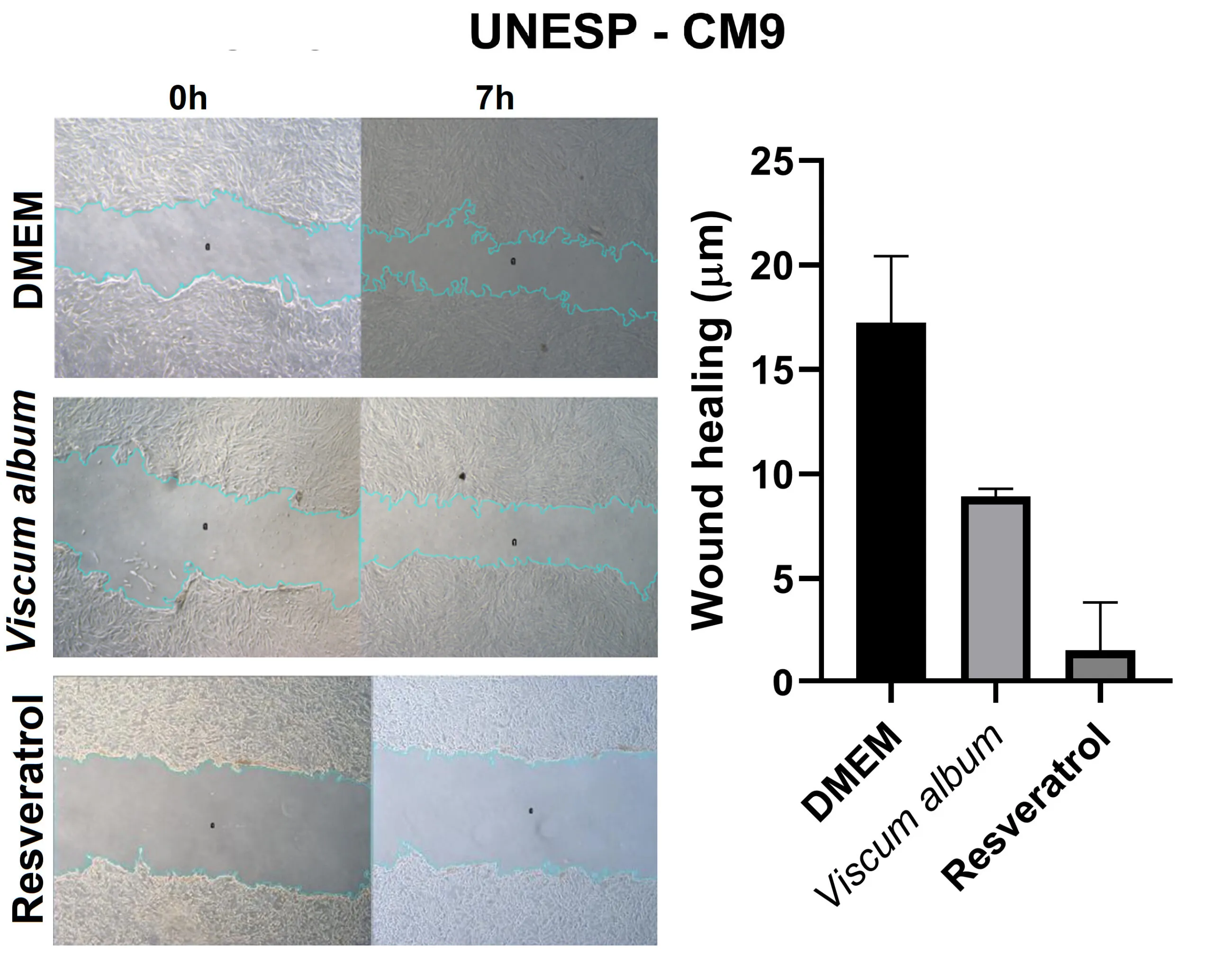Resveratrol and Viscum album anticancer effect in canine mammary tumor cell lines
DOI:
https://doi.org/10.24070/bjvp.1983-0246.v17i2p93-98Keywords:
comparative oncology, natural compounds, dogs, biocompoundsAbstract
Mammary gland tumors are the most common neoplasms in female intact dogs and share some biological and histopathological aspects with those in women with breast cancer, making them a good model in comparative oncology. Resveratrol is a polyphenol found in several plants, and some studies have indicated that it acts in the neoplastic process as an anticancer drug. Viscum album is a hemiparasitic plant widely used as an adjuvant treatment for cancer in some countries. Thus, this study aimed to evaluate the antitumor potential of resveratrol and homeopathic Viscum album together and separately using two previously characterized canine mammary tumor cell lines (UNESP-CM9 and UNESP-CM60). The cell viability test (MTT) was performed, which revealed an IC50 of 3.11 μl/100 ml for UNESP-CM9 and 2.993 μl/100 ml for UNESP-CM60 for Viscum album, and for resveratrol, the IC50 was 281.6 μM for UNESP-CM9 and 105.5 μM for UNESP-CM60. The combination of both natural compounds led to tumor cell death at a lower IC50. The cell migration assay demonstrated an increase in cell migration time with both treatments. UNESP-CM9 closed 35.66% of the wounds in the control group and 15.51% of the wounds in the viscum group, while UNESP-CM60 closed 39.46% of the wounds in the control group and 19.95% of the wounds in the viscum group and 2.41% of the wounds in the resveratrol group. Thus, these two compounds have antitumor potential, making them possible alternatives to conventional treatments.


